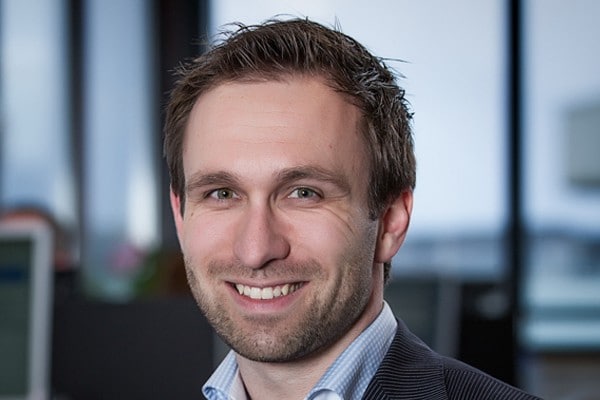Meet the data scientist: Colin Nugteren
By Stephanie Robertson, SAS Insights Editor
Chief Analytics Officer and Data Scientist Colin Nugteren says while every day is different, one thing remains the same. He ends each day with a hands-on look at important customers using SAS® Visual Analytics. As part of our Data Scientist Series, we interviewed Nugteren who works at DirectPay.
What’s your background and education?
Nugteren: I studied econometrics and management science at the Erasmus University School of Economics in Rotterdam. I graduated as a Master of Science in the field of marketing econometrics based on research I did for DirectPay about consumer credit risk in a factoring environment.

What skills help you most as a data scientist?
It’s quite an open door, but in essence it requires an analytical mind. Next to that, it is very useful to understand computers and data and the way they work together, because all major analytical advances are highly dependent on these systems.
Several other skills like autodidactic learning and an organizational mindset are very important. When you work with huge amounts of data in several systems, the competence of fast learning and a high-quality structure of the analysis, models and business rules are very important.
When did you figure out you wanted to be a data scientist? What motivated you to become one?
When I was 17 I started looking for something to study at the university level and I spent a lot of time at different universities following courses on various subjects. My interests are quite broad – from IT and technical subjects to economics and marketing. This led me to econometrics – a study that combines mathematics, programming and economics.
What department do you work in and who do you report to?
I have worked as an analyst for DirectPay for four years and I reported to the IT manager for the systems that we build. At the same time, I reported to the CEO for the analysis of our clients and portfolios. I learned a lot from that combination of IT and business.
I was simply hired to analyze the database with payments and I thought I would be done within a year or two. I learned that this process is ongoing and new possible improvements come up daily. In 2015 I was promoted to CAO, and now I am responsible for both the analysis department and the analytical decisions underlying our operational processes that actually try to collect money. Within these processes the use of analytics was subordinated for a long time, but we have achieved great results with analytics in the last few years.
Do you work on a team? If so, what’s the makeup of your team?
In our management, I work closely with my colleagues who are responsible for IT and sales. I work with my team of data scientists and our team works closely with the development team, the DBA, R&D and the business team. We realized that there are huge possibilities in analyzing more and higher quality data. I like to work with intelligent people that challenge me to think out of the box.
What’s your job like? Is there a typical day or is each day different? Can you give us a basic idea of what you do and the kind of projects you work on?
At this moment I am responsible for the implementation of the SAS Enterprise Decision Management system. So I actually pay a lot of attention again to the different SAS systems that I used to work with daily, like SAS Visual Analytics, SAS/STAT® and SAS® Enterprise Miner™. We work hard to bring these models and analyses to SAS Decision Manager and SAS Data Integration Studio.
I always kept using SAS Visual Analytics because I like to do the analysis of important clients myself. I understand our business and clients best this way. In my current role, every day is different, but I end each day with SAS Visual Analytics and a look at the production reports. Our main goal is to implement as much intelligence into our systems and decisions as possible, and I am very busy discovering opportunities to increase the use of intelligent systems.
Is your job what you expected it to be?
I love my job, especially the combination of analytics, business strategy and processes. It is much better than I expected.
What’s your biggest challenge?
It is a serious challenge to use time efficiently. My work is never finished, but I try to set goals every day and achieve them. But this can be a real challenge some days.
What’s your biggest accomplishment thus far?
Building the credit rating and collections systems that empowers our organization.
What do you enjoy doing in your spare time?
I love to spend time with my family. I really enjoy a good book or movie, and I like to play golf regularly.
What’s your favorite new technology or app?
I like to read The Verge regularly because of the combination of technology and science.
Read More
- Whether you want to find out what data scientists do, hear from some real-life data scientists or learn how to become one, check out all the articles in our Data Scientist Series:
Get More Insights
Want more Insights from SAS? Subscribe to our Insights newsletter. Or check back often to get more insights on the topics you care about, including analytics, big data, data management, marketing, and risk & fraud.
